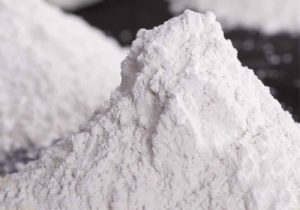
CP-10 Organoclay
CP-10 organoclay is a rheological additive made of organoclay. It is used in non-polar to moderately polar aliphatic and other solvent systems
Rheology Modifier Drilling Fluid : Traditional drilling fluids have numerous flaws, such as high leak rates and low elasticity. This can cause serious problems when drilling through difficult terrain. Our rheology modifier additives are intended to increase the elasticity of your drilling fluid, lowering flow rate and


CP-10 organoclay is a rheological additive made of organoclay. It is used in non-polar to moderately polar aliphatic and other solvent systems

CP-MPZ organoclays is an modified bentonite that is used in solvent and resin systems ranging from non-polar to highly polar.

The CP-MPS rheology modifier is a type of organo clay rheological additive that is used in solvent and resin systems ranging from non-polar to high polarity.
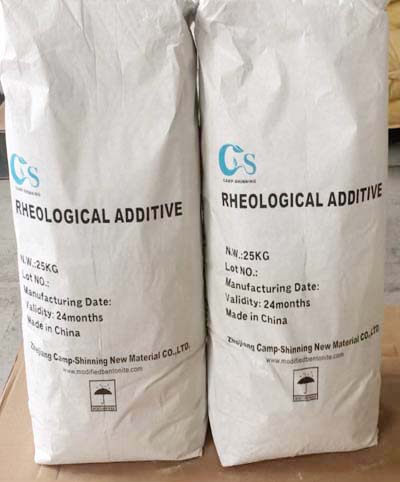
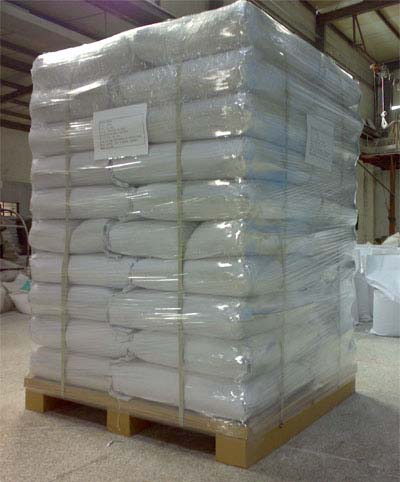
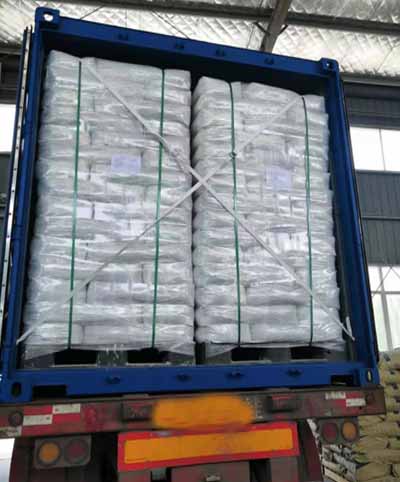
Organoclay Supplier / Manufacturer :
Internet address: https://www.rheologymodifiers.com/
Email address: [email protected]
Whatsapp / Wechat: +86-13185071071
Organophilic Clay Supplier / Manufacturer :

CP-EW Organoclay for Water Based paint. It is primarily employed in water borne paint systems,such as latex paint. So it is a good water based additive in paints,coatings,grease etc.

CP-EWS Modified bentonite It is employed in a water-borne coatings system. CP-EWS organoclay outperforms CP-EW in terms of thixotropy, transparence, and dispersion.

CP-WBS Rheology Modifier is rheological modified bentonite. It is mostly employed in water-borne systems.


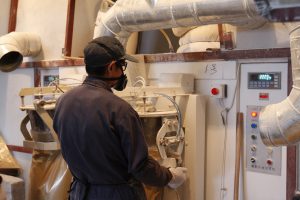
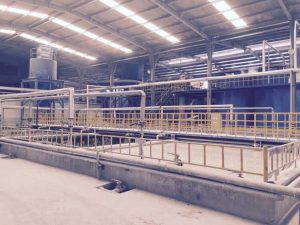

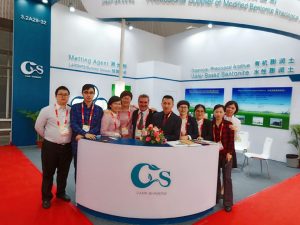
The Organoclay bentonite | Organophilic clay -specialized Zhejiang Camp-Shinning New Material CO.,LTD. and Hangzhou Camp-Shinning CO.,LTD. are subsidiaries of Camp-Shinning.
Camp-shinning concentrated on high value-added, high-technology organo bentonite series products, particularly in research, development, manufacturing, and sales of organic (solvent based organoclay) and inorganic bentonite (water based organoclay).
Our Organophilic bentonite clay finds widespread application in oil drilling mud, paint, coating, lubricating grease, adhesive, construction mortar, cosmetics, and waste water treatment, among other applications. A group of world-class professional users and distributors, such as SUN CHEMICAL,,SIEGWERK,LEHMANN &VOsS, and others, have acknowledged our dependable quality.
Current annual production of organic bentonite clay | organoclay is 20,000 metric tons, while refined bentonite production is 15,000 metric tons.
Our ISO 9001 quality system certification and IS014001 environmental management system certification, as well as our own mine with superior ore quality and production of proprietary technology, ensure the long-term quality and supply stability of our Organoclay bentonite | Organophilic clay.
Our mission is to provide users with superior Organoclay bentonite | Organophilic clay and services and to collaborate with them to achieve success and glory.
Internet address: https://www.rheologymodifiers.com/ and email address: [email protected]
Whatsapp / Wechat: +86-13185071071
Organoclay | Organophilic Clay CP-2 also named amine treated Bentonite.
In diesel oil based fluids,organophilic clay viscosifier CP-2 are used to increase carrying capacity and suspension properties, providing support for weight materials and improved cutting removal. Organophilic bentonite also aids in filter-cake formation and filtration control.
Properties
Composition Organically modified bentonite clay
Physical appearance Off white to tan free-flowing powder
Moisture content (105℃,2hr) ≤4%
Particle size (<76μm or 200mesh) ≥95%
Specific Gravity 1.6-1.8
Advantages
Effective viscosifier and gellant
Aids control of fluid loss to the formation
Increases emulsion stability
Improves cuttings carrying and hole cleaning capacity
Suspends weighting materials and other solids
Confers temperature stability to the fluid
Application
Base oil:
Diesel Oils
Crude Oils
Mineral Oils
Synthetic Oil
Viscosifying drilling Fluids:
Oil based drilling fluids
Invert emulsion fluids
Workover fluids
Completion fluids
Casing packs
Packer fluids
Spotting fluids
Package
Organoclay | Organophilic Clay CP-2 is packed in 50lb(22.7kg) or 25kg/bag or customized,multi-wall paper sacks or Kraft paper bag with PE liner or customized.
Storage
CP-2 Store in a dry, well-ventilated area with temperature of 0℃-30℃. Keep container closed. The quality guarantee period is 24 months.
Notice
The information on use is based on data which are believed reliable, but any recommendation or suggestion made is without guarantee or warranty, since the conditions of use are outside our control. All products are sold on the conditions that purchasers shall make their own tests to determine the suitability of such products for their purpose and that all risks are assumed by user. We disclaim any responsibility for damages resulting from careless or improper handling or use. Nothing herein is to be taken as permission, inducement or recommendation to practice any patented invention without a license.
Internet address: https://www.rheologicaladditive.com/ and email address: [email protected]
Whatsapp / Wechat: +86-13185071071
Rheology Modifier Drilling Fluid
Rheology Modifier Drilling Fluid
Rheology modifiers in drilling fluids have improved qualities that will make drilling in hazardous conditions faster and safer. High-performance rheology modifiers have been created using a variety of synthetic polymers. The thickening and thermal stability of one candidate polymer are combined.
Common characteristics of drilling fluid with a rheology modifier
Rheology Modifier Drilling Fluid must display the characteristics listed in the table below. The rheology modifiers applied may have an impact on these characteristics. For instance, the yield point should be improved if the viscosity is increased using the rheology modifier.
The ability of a fluid to resist pressure and temperature, or rheology, has an impact on the viscosities of drilling fluids. Four formulations of drilling fluids based on oil were created for this study. The study’s goals were to look at the stability, rheology, and density of the material. The study also investigated how heat rolling affected drilling fluids.
Rheology Modifier Drilling Fluid
In the exploration and production of oil and gas, numerous rheology modifiers are employed. These rheology modifiers’ polymers let drilling fluids penetrate more deeply, maintain their qualities, and cause less formation damage. They can also improve the stability and morphology of drilling fluid.
Ability to tolerate challenging conditions in the well is a crucial quality that a Rheology Modifier Drilling Fluid must have.
Rheology modifiers must be able to withstand the extremely high salt concentrations that are frequently present in working fluids. On the other hand, rheology modifiers are susceptible to shear and eventually lose their stabilizing power.
Once the fluid circulation has ceased, a rheology modifier must be able to sustain high stress while holding cuttings in suspension. It must also have a viscosity that is low enough to allow for effective pumping. A high yield stress in the past denoted a high shear-thinning. These qualities are no longer desired, though.
Rheology modifiers and emulsifiers are frequently combined in oil-based drilling fluids. Although a water-based drilling fluid is more environmentally friendly, it has limitations in some circumstances, such as in shale-bearing strata.
Due to environmental considerations, the use of water-based drilling fluids is uncommon in drilling operations. However, because these fluids offer improved wellbore stability, they are advised for applications requiring high temperatures, shale, and high pressure deep wells.
Effects of a Rheology Modifier Drilling Fluidon the rheological characteristics of drilling fluids based on oil
Depending on the amount of rheology modifier present, oil-based drilling fluids may have a variety of rheological characteristics. The rheology modifier occasionally aids in regulating the viscosity of drilling fluids. For instance, as temperatures rise, the viscosity of drilling fluids containing organophilic clays tends to decrease. Rheological modifiers must therefore be present in oil-based drilling fluids because of this.
Drilling fluids made of oil are frequently utilized for a variety of purposes. Their rheological characteristics are crucial for a number of factors, such as the decrease in drilling accidents and the accelerated drilling rate. Weighting agents are frequently added to drilling fluids made of oil to improve their density. However, this could result in a number of issues, including an increase in solid content, a high viscosity, and a high coefficient of friction. Therefore, it is crucial for the oil sector to maintain appropriate rheological qualities in drilling fluids.
Working fluid rheology agents must be resilient enough to endure the hostile well environment.
Oil-based drilling fluids typically exhibit rheological behavior that varies with temperature and pressure. The viscosity can change due to this variability, which has a big impact on the wellbore stability, equivalent circulating density, and suspension properties.
The oil-water interface, a polymer film made mostly of the emulsifying ingredient, asphaltene, and gelatin, regulates the stability of the oil-in-water emulsion. Solid-phase particles, which are uniformly scattered within the oil and spread to the oil-water contact, also have an impact on the oil-water interface.
Rheology Modifier Drilling Fluid
Effects of Rheology Modifier Drilling Fluid on synthetic polymers’ rheological characteristics
There are various benefits to adding a synthetic polymer as an addition to drilling fluid. Controlling fluid loss at high temperatures is one of them. It also improves thermal stability and drilling fluid filtration, which is an advantage.
Organoclay Supplier / Manufacturer :
Internet address: https://www.rheologymodifiers.com/
Email address: [email protected]
Whatsapp / Wechat: +86-13185071071
Organophilic Clay Supplier / Manufacturer :

CP-180 organoclay is an organo clay rheological additive (modified montmorillonite) designed specifically for use in solvent-based systems

CP-34 organoclay is a modified bentonite that has been specifically designed for use in solvent-based systems.

CP-EDS modified bentonite is a kind of organo clay rheological additive. It is used in systems of medium polarity and high polarity system.

CP-992 Organophilic Clay, the wet process improved viscosifier and gelling agent . It is a rapidly dispersing.

CP-982 Organophilic Clay is an amine treated bentonite with a moderate temperature performance.

CP-150 Organophilic Clay is a self-activating organoclay that disperses easily and performs well in diesel, low aromatic mineral oil, modified vegetable oil, and synthetic base fluid formulations.
Rheology Modifier Drilling Fluid